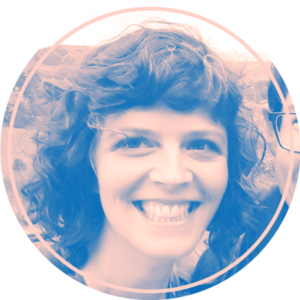 Where are you from?
Where are you from?
Boulder, Colorado.
What’s your specialty or area of expertise?
I’m a family physician with an area of expertise in Integrative Medicine.
What first inspired you to become a doctor?
I’ve always been inspired by the notion of health. Not just treating disease, but figuring out how to promote and cultivate lives that naturally create healthy communities. After studying, living, and working in Latin America, it became more and more clear to me that this was particularly important for people and communities with fewer resources. In these communities, I was struck by how women were often limited in their options in life by their lack of control over their reproduction. I ultimately chose to become a doctor to ensure that women would continue to be able to make choices about what they wanted their families to look like and when they wanted to have them. I especially wanted to ensure that these choices were available to poor communities and communities of color.
What story about one of your patients most sticks with you?
There are so many stories; it’s hard to pick just one. Every clinic day is full of examples of how strong women are and what difficult life circumstances they both endure and overcome. I’m incredibly humbled by how resilient my patients are, and how each one of them has arrived at the right decision for their family and for their lives, however complex or difficult the decision may be. I’m struck by how often women are surprised that having an abortion is such a common experience in women’s lives; that one third of American women will have an abortion in their lifetime. I’m also routinely saddened that my patients fear judgment and punishment from me or my staff for their decision to have an abortion. They are genuinely surprised to be treated with compassion and kindness. It makes me sad that we live in a political climate that makes women feel ashamed and silenced in making the decision to have an abortion. No one deserves that kind of judgment.
Recently, I had a patient who had moved to the area with her husband and four kids to escape difficult living conditions. They were genuinely trying to provide for their already large family (all four were under the age of six, and the youngest was under one) and felt like they couldn’t provide for one more child. The mom hoped to go back to school, and the dad had an entry-level job. He held her hand during the entire procedure, and they decided to get an IUD immediately post procedure so that they wouldn’t have to be in this situation again. It was a tough decision for them, but one that was the best for their family.
What current policy issue especially motivates you to be an advocate?
Right now it feels like the most vulnerable parts of our society are under attack. As a white woman physician, I think it’s critical to use my voice as an ally now more than ever. I think it’s important to shed light on positive things that are happening around the country so that we can recreate these bills and policies. Just this month, Governor Kate Brown signed a landmark bill in Oregon to provide free abortions for all, regardless of immigration status. We need to see more positive legislation like this. Abortion should not be considered some type of alternative health care available only to a few.
Who is your social justice hero?
This is a tough one. There are so many young women standing up and working toward not just gender equity, but also for racial and LGTBQ justice. I think one of the most important messages out there right now is that we are all inextricably linked. As Lilla Watson said, “If you have come here to help me, you are wasting your time. But if you have come because your liberation is bound with mine, then let us work together.” Along those lines I’m inspired by all the leaders of the Black Lives Matter movement, Patrisse Cullors, Opal Tometi, and Alicia Garza, as well as the other leaders involved in the March for Women’s Lives after the inauguration, like Linda Sarsour. Berta Cáceres was an incredibly powerful leader of the Indigenous Lenca people in Honduras, who was murdered in her home for defending her people’s land from being illegally taken and developed for industrial purposes. And last, Eve Ensler was likely the first voice in my life that spoke out about women’s lives and hardships, including not just domestic violence and female genital mutilation, but also our right to be multidimensional human beings, with her Vagina Monologues and the V-Day movement.